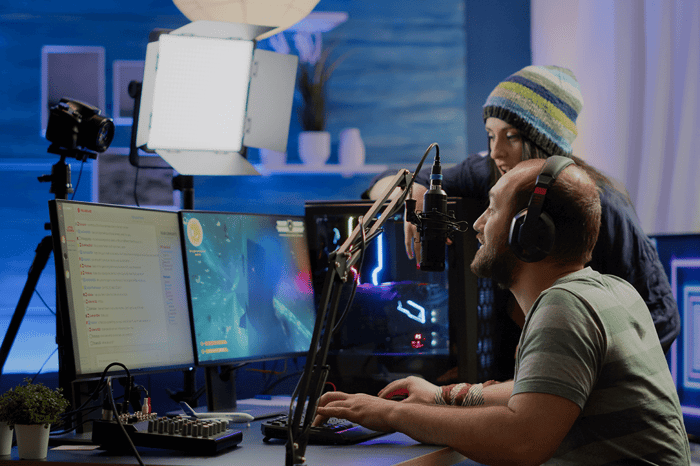
A couple years back, I remember hearing someone say something like “an entrepreneur is the only person who will work eighty hours a week to avoid working forty.”
While there’s a lot of overlap between the definitions of “freelancer” and “entrepreneur” already, I think this is something that applies to both equally.
Being a freelancer is awesome, and there’s truly never been a better time in history to follow the freelance path. That said, it’s not easy. It requires a lot of grinding, a lot of late nights, a lot of trial and error (and yeah, a f*ck-ton of coffee).
Here are a few key things I personally wish I had known about before I started freelancing all those years ago.
Thing #1: Finding a Niche
When you need to start making money yesterday, finding a “niche” might seem like one of the last things on your list.
Really, it should probably be one of your primary goals. You might find your niche by doing a lot of research, coming up with the ideal types of clients you’d like to work with, or just flat out trying a lot of different things.
Most likely, it’ll take a combination of all of these before things start falling into place, and you can then take strategic steps to find the perfect niche for yourself.
Finding a niche is important for many freelancers to succeed financially, as well as to find the type of work they enjoy and are most suited for.
So. Should you hurry to find a niche?
Not necessarily.
Before you get your first few clients, it’s true that trying to fit a narrow niche can hurt your chances of connecting with potential clients. Strategically, depending on what you’re trying to do exactly, it could be a better move to “cast a wide net.”
Once you have some clients and aren’t worrying about your finances as much, it’s a lot safer to start narrowing down your niche.
Like many things when you’re running your own business: Growth leads to faster and easier growth.
The more established you become as a freelancer, the easier it becomes for you to build on your previous success—and ultimately do the work you love with your dream clients.
Thing #2: Working Around the Clock
For some freelancers, working around the clock is a goal. For others, the main goal is to work as few hours as possible.
I’d say that for most, having enough work to do it around the clock is a short-term goal and working towards the notorious “4 hour workweek” is probably a long-term goal.
One of the biggest perks of being a freelancer is you don’t have to clock in at 9 and out at 5. It also means that sometimes, you may find yourself starting your day at 7am and working until 2am.
Being able to organize your time and structure your day—and stick to it—is one of the key skills a freelancer needs to possess (or develop).
When it’s one of those “strive or starve” kind of months (or years), it’s way too easy to start becoming a people pleaser. A lot of freelancers will go through these growing pains—the important thing is to work towards balance.
Thing #3: What it’s Actually Like to “Grind”
Grinding is an absolute necessity as a freelancer, especially in the early stages.
A lot of entrepreneurs (as well as wannabe entrepreneurs—often the loudest ones in the room) wear “the grind” like a badge of honor. They’ll proudly announce how much they’re grinding and hustling to anyone listening (and a lot of people who aren’t listening, too).
There’s nothing really wrong with that, either. But, if you’re truly grinding and hustling constantly and not just doing a humblebrag (people love those), you’re going to burn out.
And not in the cool fire emoji way. Closer to the “I have to stop or I’m going to walk out on all of this even though I’ll lose my only income source” way.
Grinding can be useful. It’s been a key to many freelancers’ success stories, if not all of them. But it’s not a sustainable long-term strategy. To put it another way, you need to grind your way out of the grind.
Thing #4: Freelancer Burnout
Freelancer burnout is, no joke, one of the worst things that can befall a freelancer on their path to success.
It’s also one of the most common! Great, eh?
The effects of being overworked and exhausted can lead to a bunch of negative repercussions that end up building on each other—constantly “chasing” payments, unhappy clients, and lower quality of work overall. Burnout, if not dealt with, is the downfall of many a freelancer, a solopreneur, even a small agency.
If you’re already freelancing or are thinking of diving in, you need to expect burnout at some point. No matter how well you balance your workload, it’s almost an inevitability working as hard as most freelancers do. When you start feeling the effects (don’t worry, they’ll be noticeable), address them. Don’t just “keep grinding,” or you’ll be sorry later on.
Remember the words of George Costanza’s nemesis Lloyd Braun: “just keep grinding now, insanity later.” He said something like that.
Again, balance is important. There’s nothing wrong with working occasional late nights to finish up projects when the workload is more than you expected. Those kinds of nights can even be kind of exciting and adrenaline-filled, especially if you’re working with a team.
Should You Freelance?
If being a freelancer is in your soul, at the end of the day, it’s worth it. It might not seem like it during the hard times, when everything goes wrong. But if you truly want it—truly—there’s no question that it’s worth all the effort.
In the world post-March 2020, many Americans have unexpectedly found themselves leaving the old 9-to-5 world (or, you know, the 8-to-6-whenever-the-boss-wants world) and becoming part of the gig economy. I mention this because a ton of people out there made the decision to go freelance out of absolute necessity, and not because it was what they really wanted.
It’s true: not every single person out there freelancing is meant to be a freelancer. It’s hard for someone who really wants it; it’s even harder for someone who doesn’t want it at all.
Questioning whether you want to be a freelancer doesn’t mean you’re not meant to be one.
Even if you find yourself questioning yourself sometimes specifically “Should I just go back to work?”—it doesn’t mean you’re not meant to be your own boss. Every freelancer asks, or at least should ask, themselves these kinds of questions at one point or another (naturally when things are at their most stressful).
Ultimately, you need to determine for yourself how much you want to have agency over your own life. Remember the old Jurassic Park quote: “Freelance finds a way.”
If you truly want it, you will find a way to make it work.





